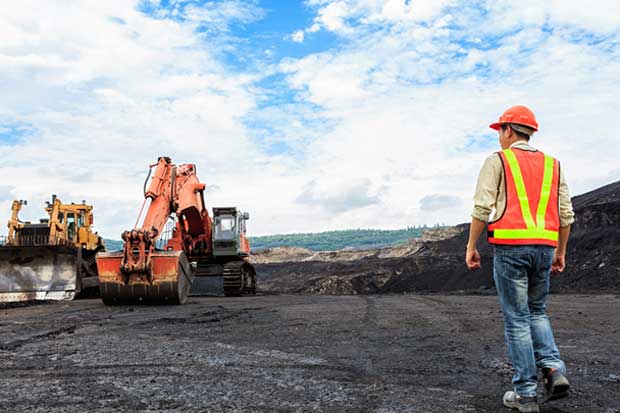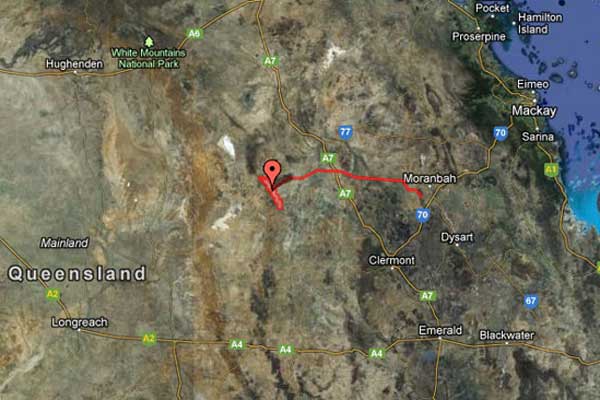Indian mining giant Adani Group is facing fresh problems today with a community group dragging it into a Queensland court to defend its controversial plan to build Australia’s largest ever coal mine in Queensland’s Galilee Basin.
The legal bid kicks off this morning, and is set to run for five weeks.
Land Services of Coast and Country Incorporated is asking the Queensland Land Court to recommend against Adani’s proposed $16 billion Carmichael mine over a suite of environmental, economic, social and climate concerns.
The mega-mine would export 60 million tonnes of coal through the Great Barrier Reef for up to 90 years and, importantly, is largely seen as the key to opening up the vast and untapped coal reserves of the Galilee Basin.
It’s a challenge the controversial company, which now faces three legal battles and a virulent community opposition campaign, would no doubt rather not face.
The Queensland Environmental Defenders Office (EDO), which is running the community group’s case, will now spend the next five weeks probing all areas of the project’s documentation and justification as Adani continues its battle to start digging up coal.

“The criteria that applies to the decision in the Land Court is really broad,” the CEO of Queensland EDO, Jo-Anne Bragg, said.
“It’s all about looking at what are the costs and benefits of the project – economic cost, ecological, social issues.”
Land Services of Coast and Country will bring a broad range of concerns to the court, from Adani’s financial capacity to pull the project off and its environmental impacts on threatened species, to its climate impacts (including on the Great Barrier Reef) and the destruction of cultural heritage.
The court does not have the power to reject the mine, but any recommendation against it would add weight to the strong community opposition already stacked against the Carmichael project.
Adani has not yet secured state approvals for the mine, and the case provides an opportunity for a ‘merits review’ before the project receives state approval.
Importantly, it will also allow for independent experts, economists, scientists, and ultimately the courts, to assess the integrity of Adani’s plans.
Mining applications are typically assessed by the government on evidence prepared by consultants hired by the company.
“The crucial part of this case is that there will be independent experts, some of which have been engaged by the community group, as well as experts engaged by Adani,” Bragg said.
“This is a very important element, because those experts will have to debate in an open court.”
Economics, as well as environmental and cultural considerations, will be a key battleground.
Analysts have suggested that for the project to be viable, thermal coal will need to fetch between $100 and $120 per tonne, but prices have slumped to around $70 and experts are increasingly questioning whether that slide is structural, and whether Adani’s mine could ever be financially viable.
Macquarie Bank has previously said that developing these projects would require people to “ignore conventional economics”.
New Matilda understands the accuracy of job creation claims will also come under scrutiny.
The mine’s impact on one of just two nationally important populations of the endangered Black-Throated Finch, as well as the use of billions of litres of groundwater each year, will also be put under the microscope.

Peripherally, these debates play out against the backdrop of Adani’s dubious environmental track-record.
In 2013 the Indian government found Adani guilty of serious breaches of Indian environmental law, including illegally clearing mangroves and destroying tidal creeks.
Indian Courts also found, in 2012, that infrastructure associated with Adani’s port in Mundra had been built without environmental approvals, and last month a Fairfax investigation into Adani’s “complex web of companies” raised questions over its governance.
While Indian billionaire Gautam Adani is ostensibly in control of the group’s Australian assets, his brother Vinod Shantilal Adani, who has been named in a criminal investigation in to the syphoning of $1 billion from Indian shareholders into offshore accounts, holds “pivotal positions”.
It is climate change, though, that has provoked the strongest community concern.
Crucially, many of the eight other mines proposed for the basin are relying on Adani, the biggest horse in the race to develop the Galilee, to provide the rail and port infrastructure needed to get the coal to market.
Together the projects, if they go ahead as proposed, would produce more carbon emissions than entire nations like New Zealand, Italy, South Africa, and the U.K.
Experts have warned that climate change is the most serious threat to the Great Barrier Reef, and the global contribution coal exports from the Galilee would make to the climate crisis will neutralise any domestic reductions in Australia.
In April, a separate community case, to be heard in the Federal Court, will determine whether the federal Minister for the Environment, Greg Hunt failed to properly apply national environmental law by not considering the carbon emissions that will be created when the coal is burnt after export.
There is also a legal question mark hanging over whether Adani can go ahead with its mine against the wishes of the traditional Wangan and Jagalingou custodians.
Last week, Guardian Australia reported that a native title claim, lodged in 2004 and due to be determined soon, could give the traditional owners who lodged it the right to block the project.
For Land Services of Coast and Country, though, “a successful outcome would be if the Land Court recommends against granting of a mine lease and against granting of environmental authority to Adani,” Bragg said.
“We’d certainly be hoping the [state government’s]decision was in line with the recommendation.”
Queensland’s EDO will post daily updates on the case here.
Donate To New Matilda
New Matilda is a small, independent media outlet. We survive through reader contributions, and never losing a lawsuit. If you got something from this article, giving something back helps us to continue speaking truth to power. Every little bit counts.



